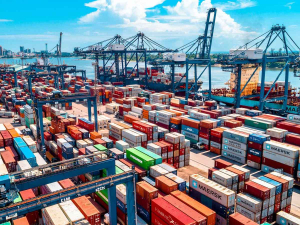A global trade war beckons, which is bad news for a small open economy like New Zealand, warns Mark Smith ASB senior economist.
However, he doesn’t expect NZ to retaliate with tariffs on imports from the US.
In a commentary on President Donald Trump’s decision to slap additional tariffs on most of the country’s trading partners, Smith assumes that NZ does not counter with reciprocal tariffs on imports from the US.
“It is not in NZ’s economic interest to retaliate, with the imposition of NZ tariffs on US exports adding to costs faced by NZ firms and households,” he says.
Not responding will lessen the overall NZ economic hit. Smith believes all up the total economic hit could be up to 0.5% of NZ GDP. However, the confidence intervals this estimate are wide, he adds.
The aim of the tariffs is to correct for perceived unfair trade practices, reduce large US trade deficits and rebuild manufacturing in the US.
Smith notes that given US goods imports are around US$3.3 trillion annually at present, the value of the tariffs is substantial. “Our best guess is that the average tariff rate on goods exports to the US jumps to around 25%, with tariffs bringing in roughly US$700bn annually, approximately 3% of US GDP.
“The tariffs will largely be funded by US firms and consumers although the higher costs of exports to the US will weigh on export demand globally. There will be a direct impact on NZ.”
The US is NZ’s 3rd largest goods export market ($9bn annually), being a key destination for NZ exports of meat, dairy and wine as well as selected non-commodity exports.
Higher US tariffs on NZ goods exports are equivalent to about $900m annually, roughly 0.2% of GDP. Impacts are unlikely to be even across the NZ export sector, with some sectors harder hit than others, says Smith.
The timing of the tariffs isn’t great, Smith points out that they come after the Covid-induced hike to prices that severely shook up the global norms of low and stable inflation.
“A bout of tariff-induced inflation could significantly test how well anchored wage and price settings are to inflation targets. For NZ, we are sticking with the judgement that annual CPI inflation will peak at just over 2.5% in 2025 and then cools over 2026 given the hit to NZ and global growth.”
Smith expects 50bps of OCR cuts by mid-2025 and there could be more cuts down the line.
“If a brutal trade war ensues and the global economy deteriorates further, we envisage a scenario in which the OCR gets cut further.
“Pronounced volatility and enhanced uncertainty are likely to be the new norms over 2025. We will be closely following policy announcements from the US and abroad.
“As early warning signals we will be focusing on the 5 Cs. We don’t think that tariffs will work for the US and will ultimately be self-defeating and an economic own goal. Unfortunately, the US economy will not be the only losers.”


















